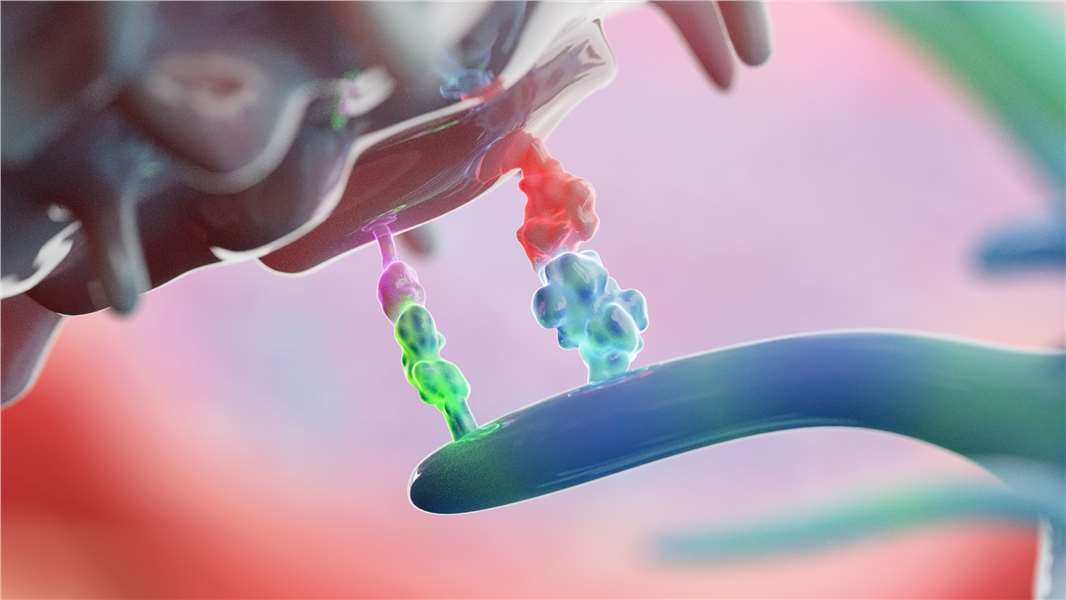The immune system serves as a crucial defense mechanism, protecting the organism against external intrusion and maintaining stability within the internal environment. It is closely related to the onset and progression of tumors. Research has highlighted the significance of immune checkpoints as vital targets in cancer treatment. Immune checkpoints are a class of immunosuppressive molecules expressed on immune cells, regulating the degree of immune activation. They play a pivotal role in preventing autoimmunity and are generally recognized as small protein molecules produced by immune cells to modulate autoimmune functions. Several drugs have been developed to target these immune checkpoints, displaying great potential for disease treatment, particularly in the case of cancer.
Many drugs targeting immune checkpoints have been used in the treatment of cancer patients. Among these, checkpoint antagonist antibodies are one of the most important types. Based on our rich field experience and advanced technology platform, Creative Biolabs provides comprehensive services for custom antagonistic antibodies to support antagonistic antibody therapy development.
 Fig 1. Immune checkpoint
Fig 1. Immune checkpoint
Abnormal expression and function of immune checkpoint molecules are one of the major causes of many diseases. For example, if the immune checkpoint molecules are overexpressed or function too strongly and the immune function is suppressed, the body's immunity will be low, at which time it will be prone to tumors and other diseases. On the contrary, the immunosuppressive function of immune checkpoint molecules is too poor, and the immune function of the organism will also be abnormal. During the tumor process, tumor cells express some substances. These substances will activate immune checkpoints. Once the immune checkpoints are activated, the antigens cannot be presented to the T cells, blocking the process of presenting antigens in the tumor immunity and thus suppressing the immune function of the T cells, which can escape the surveillance and survive by themselves.
CD28 is an immune checkpoint molecule. CD28 is the only B7 receptor that is constitutively expressed on naïve T cells and provides co-stimulatory signals required for T cell activation and survival with ligands B7-1 (CD80) and B7-2 (CD86). Upon activation of Toll-like receptor ligands, B7-1 expression is up-regulated in APCs, whereas B7-2 is constitutively expressed in APCs. The interaction between CD28 and its ligands is involved in T cell activation, stimulation of cell proliferation and cytokine production, and promotion of T cell survival. Antagonistic CD28 uses a CTLA4-immunoglobulin fusion protein to block the amplification of the CD28 ligand. Studies have shown that antagonistic CD28 antibodies, in combination with tacrolimus, mycophenolate mofetil (MMF), or rapamycin, inhibit skin graft rejection and prevent rejection of transplanted kidneys in non-human primates in mice. FR104 is an antagonist monoclonal antibody against CD28. The drug was found to be able to achieve immune tolerance by inhibiting T-cell proliferation, memory T-cell function, and blocking the synthesis of related cytokines. Researchers have tested the drug at the preclinical level against autoimmune diseases such as rheumatoid arthritis, multiple sclerosis, and psoriasis.
Selective targeting of CD28 may be an effective immunomodulatory strategy that delivers inhibitory signals through CTLA-4, thereby preventing T-cell co-stimulation while favoring co-inhibition; PD-L1 and B7 are unaffected.
Creative Biolabs has a wealth of knowledge and experience in custom antagonistic antibodies. We would be happy to share our knowledge and experience in antagonistic antibody discovery by phage display with you.
All listed services and products are For Research Use Only. Do Not use in any diagnostic or therapeutic applications.